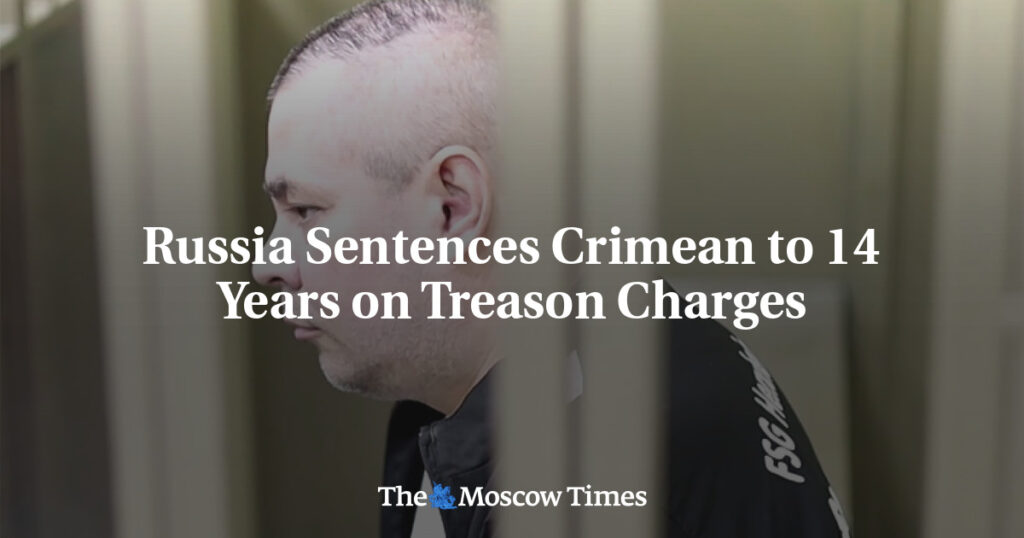Crimean Resident Sentenced to 14 Years: A Reflection of Russia’s Ongoing Crackdown
On Friday, Russian authorities sentenced Igor Kopyl, a 47-year-old resident of Sevastopol, Crimea, to 14 years in a penal colony on charges of treason. The Federal Security Service (FSB) accused Kopyl of aiding Ukrainian military efforts and preparing a terrorist attack. His sentencing highlights Russia’s intensified crackdown on individuals accused of supporting Ukraine or opposing Russia’s military operations, now in their third year since the full-scale invasion of Ukraine in February 2022.
Kopyl is a former member of the Ukrainian navy reportedly recruited by Kyiv in 2022. The FSB alleged he transmitted sensitive information regarding Russian naval vessels, air defense systems, and other military assets to Ukrainian authorities. Moreover, he was accused of receiving explosives intended for a terrorist act. These allegations come against the backdrop of sustained tensions over Crimea, a region Russia annexed in 2014. Since then, Crimea has been a focal point of the ongoing conflict, with Ukraine targeting Russian military positions on the peninsula.
The broader picture reveals a pattern of Russia’s legal actions against its citizens, particularly those it accuses of undermining its military objectives. The Kremlin’s expansive crackdown has also targeted peaceful protesters and critics of the war, reflecting President Vladimir Putin’s zero-tolerance policy towards dissent.
In a related event, Russian authorities opened a criminal case against Gulnara Bakhareva, a street sweeper in the Urals, for "justifying terrorism." This came after she publicly supported Alexei Nuriyev, who had been sentenced to 19 years for an arson attack on an army recruitment office. The attack was part of broader anti-mobilization protests across Russia, opposing the government’s call for citizens to join the military efforts in Ukraine. Bakhareva’s alleged crime was expressing pride in Nuriyev’s actions on social media. This case illustrates the far-reaching implications of Russia’s stringent anti-terrorism laws and the risks faced by those expressing opposition to state policies, even indirectly.
These moves by Russian authorities underscore the stringent measures being adopted to stifle dissent and control narratives around Russia’s military actions. The government’s actions continue to draw criticism from international human rights organizations, who argue that such measures represent serious infringements on free speech and civil liberties. As the conflict between Russia and Ukraine persists, the international community remains watchful of how these legal proceedings unfold, impacting both domestic opinion in Russia and broader geopolitical dynamics. For more information about recent developments, visit the Russian Government’s Official Website.
